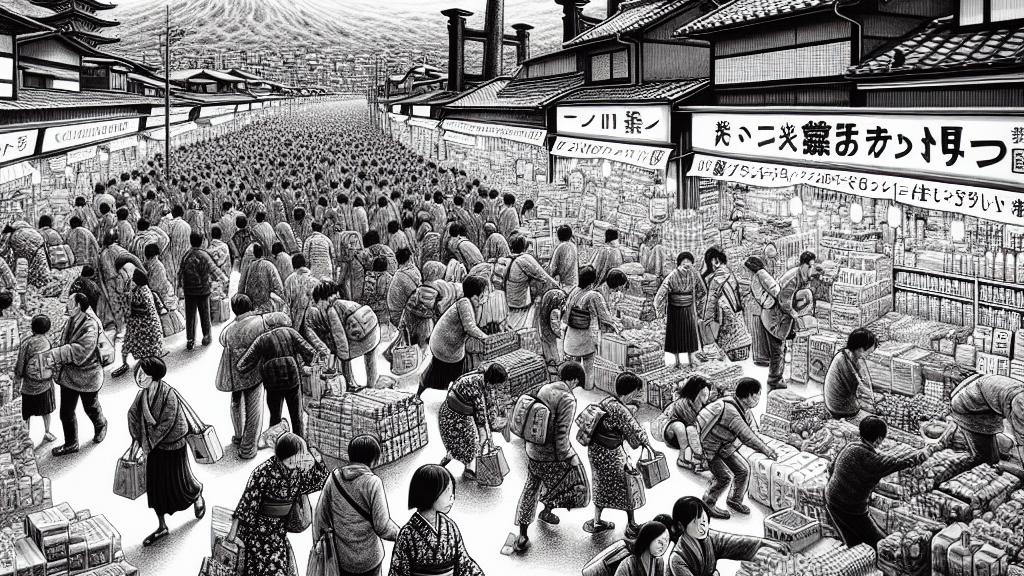Japan on Edge: Mega Quake Fears Trigger Panic Buying Frenzy!
Overview
- Japanese officials urge calm as earthquake fears lead to panic buying.
- A 7.1 magnitude quake raises concerns of a potentially devastating mega quake.
- Residents rush to stores, causing shortages of essential supplies and protective gear.

Significant Earthquake Activity and Rising Concerns
On August 8, 2024, Japan was jolted by a magnitude 7.1 earthquake that struck off the southern coast near Kyushu, causing minor injuries but igniting fears of a larger, more catastrophic seismic event. The earthquake occurred along the Nankai Trough, an area notorious for its historical record of powerful quakes that have devastated the region in the past. Experts are now predicting a staggering 70-80% chance of a magnitude 8 or 9 quake occurring in the next 30 years. This seismic threat, coupled with the immediacy of the recent tremor, has led the Japan Meteorological Agency (JMA) to raise its risk assessments and alert the public to enhance their disaster preparedness efforts, highlighting the urgent need for awareness in a nation that frequently grapples with seismic activity.
Panic Buying: Behavior and Its Implications
In response to the alarming news, a wave of panic buying surged across Japan, particularly in urban areas where anxiety about supply shortages ran high. Supermarkets quickly became crowded as shoppers swarmed the aisles, eagerly grabbing bottled water, canned goods, batteries, and masks. Some stores resorted to implementing purchasing limits to manage the chaotic demand and prevent shelves from being wiped clean. This behavior is not uncommon in crisis situations, driven by a mix of fear, a desire for control, and the influence of observed behaviors from others. Studies show that such panic buying can mirror stock market reactions in times of uncertainty—people buy more not only due to necessity but to avoid missing out in case of a sudden shortage. The psychological triggers behind such behavior reveal a complicated interplay between individual fears and collective actions during emergencies.
Government Initiatives and Public Education on Preparedness
To mitigate the impact of panic buying and foster a more thoughtful approach to disaster preparedness, Japanese authorities are actively reinforcing public education. Prime Minister Fumio Kishida has urged citizens to remain composed, stressing that the risk is heightened but not immediate. The government has disseminated information on assembling effective emergency kits, which should include enough supplies—like water, food, and first aid— to last at least three days. Furthermore, officials have emphasized the importance of discerning credible information, cautioning against the spread of misinformation and sensationalism that often accompanies seismic threats on social media. By encouraging informed preparedness rather than impulsive purchasing, the government aims to build a resilient community that is ready for any eventuality without succumbing to unnecessary panic.

Loading...